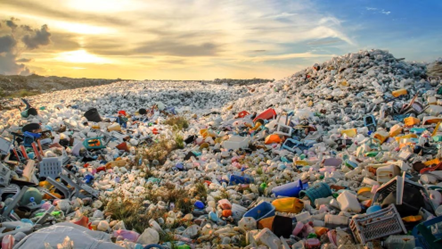
According to a report published on the website of Greenpeace, an environmental non-governmental organization, it is warned that the recycling process contributes to increasing the toxicity of plastics and poses a threat to human health. This claim is based on several scientific investigations cited in the report.
The United Nations Environment Program notes that plastics contain more than 13,000 chemicals, of which more than 3,200 are known to be hazardous to human health. Greenpeace highlights that recycled plastics often contain higher levels of chemicals that can have harmful effects on people and pollute communities. Among these compounds are toxic flame retardants, benzene and other carcinogens, as well as environmental pollutants such as brominated and chlorinated dioxins, and various endocrine disruptors that can disrupt the body’s natural hormone levels.

Graham Forbes, leader of Greenpeace’s global plastics campaign in the US, stated that the plastics industry, including fossil fuel, petrochemical and consumer goods companies, continues to promote plastic recycling as a solution to the plastic pollution crisis. However, according to the report, the toxicity of plastic actually increases with recycling. Forbes emphasizes that plastic has no place in a circular economy and argues that the only true solution to addressing plastic pollution is to drastically reduce its production.
Greenpeace has published this report in anticipation of the Global Plastics Treaty negotiations, which will take place in Paris (France) from May 29 to June 2. As part of its stance, Greenpeace proposes a seven-point plan that includes a significant and immediate reduction in plastic production, encouraging the transition to economies based on recharging and reuse, and promoting non-combustion technologies for waste disposal.









